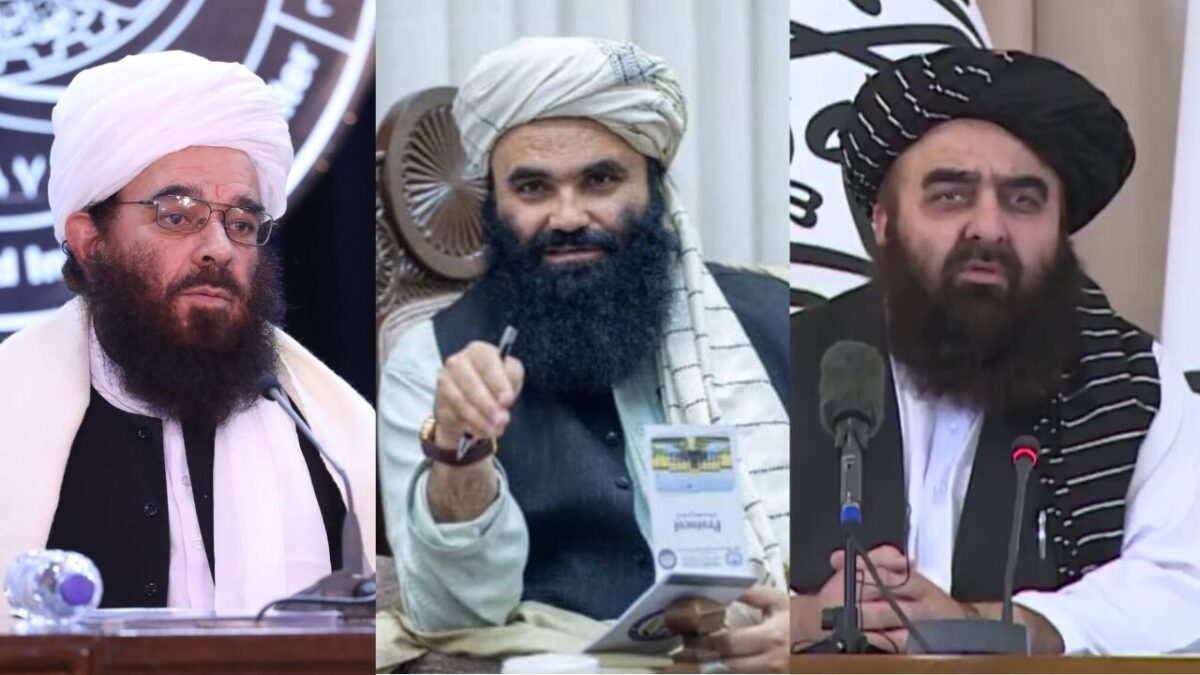The United Nations Security Council’s 1988 Sanctions Committee has approved travel ban exemptions for three senior Taliban officials, including Siraj Haqqani, allowing them to travel abroad for religious and diplomatic purposes. These decisions come amid growing scrutiny of the Taliban’s leadership and internal divisions.
Sirajuddin Haqqani was granted an exemption to visit Saudi Arabia from January 23 to February 3, 2025, for Umrah. Noor Mohammad Saqib was allowed to attend the Hajj Conference and Exhibition in Makkah from January 13 to January 16, 2025, while Amir Khan Muttaqi traveled to Abu Dhabi, UAE, from December 28, 2024, to January 7, 2025, for discussions on regional security and reconciliation.
Haqqani’s extended absence has drawn particular attention. Sources familiar with the matter revealed on Monday, Feb. 3, that Haqqani, the Taliban’s interior minister, has yet to return to Afghanistan 13 days after traveling to the UAE earlier this month. Another source suggested that Haqqani may have traveled to Saudi Arabia for Umrah, further prolonging his stay.
His delayed return comes amid increasing internal tensions within the Taliban leadership. Abbas Stanikzai, the Taliban’s deputy foreign minister, recently criticized Supreme Leader Hibatullah Akhundzada, signaling growing fractures within the Taliban. Additionally, disputes surrounding the reassignment of Abdul Kabir from deputy prime minister for political affairs to minister of refugees have fueled speculation about leadership struggles.
Haqqani’s trips to the Gulf have also raised questions about the Taliban’s ties with the United States. Afghan journalist Jilani Zwak suggested that the UAE, which has served as a mediator between the Taliban and Washington, played a key role in facilitating discussions involving the Haqqani network.
“I don’t think this trip was about Afghanistan’s relations with the UAE,” Zwak said. “It was more about Afghanistan’s relations with the United States—and more specifically, the Haqqani network’s ties with Washington.”
As the Taliban navigate internal leadership disputes, they also face renewed international scrutiny. The return of Trump to the White House has brought additional pressure on the group, particularly regarding human rights violations. Meanwhile, the International Criminal Court (ICC) is considering a request to issue arrest warrants for Akhundzada and the Taliban’s chief justice, which could deepen the group’s isolation on the global stage.
UNITED NATIONS — The United Nations Security Council’s 1988 Sanctions Committee has approved travel ban exemptions for three senior Taliban officials, including Siraj Haqqani, allowing them to travel abroad for religious and diplomatic purposes. These decisions come amid growing scrutiny of the Taliban’s leadership and internal divisions.
Sirajuddin Haqqani was granted an exemption to visit Saudi Arabia from January 23 to February 3, 2025, for Umrah. Noor Mohammad Saqib was allowed to attend the Hajj Conference and Exhibition in Makkah from January 13 to January 16, 2025, while Amir Khan Muttaqi traveled to Abu Dhabi, UAE, from December 28, 2024, to January 7, 2025, for discussions on regional security and reconciliation.
Haqqani’s extended absence has drawn particular attention. Sources familiar with the matter revealed on Monday, Feb. 3, that Haqqani, the Taliban’s interior minister, has yet to return to Afghanistan 13 days after traveling to the UAE earlier this month. Another source suggested that Haqqani may have traveled to Saudi Arabia for Umrah, further prolonging his stay.
His delayed return comes amid increasing internal tensions within the Taliban leadership. Abbas Stanikzai, the Taliban’s deputy foreign minister, recently criticized Supreme Leader Hibatullah Akhundzada, signaling growing fractures within the Taliban. Additionally, disputes surrounding the reassignment of Abdul Kabir from deputy prime minister for political affairs to minister of refugees have fueled speculation about leadership struggles.
Haqqani’s trips to the Gulf have also raised questions about the Taliban’s ties with the United States. Afghan journalist Jilani Zwak suggested that the UAE, which has served as a mediator between the Taliban and Washington, played a key role in facilitating discussions involving the Haqqani network.
“I don’t think this trip was about Afghanistan’s relations with the UAE,” Zwak said. “It was more about Afghanistan’s relations with the United States—and more specifically, the Haqqani network’s ties with Washington.”
As the Taliban navigate internal leadership disputes, they also face renewed international scrutiny. The return of Trump to the White House has brought additional pressure on the group, particularly regarding human rights violations. Meanwhile, the International Criminal Court (ICC) is considering a request to issue arrest warrants for Akhundzada and the Taliban’s chief justice, which could deepen the group’s isolation on the global stage.





